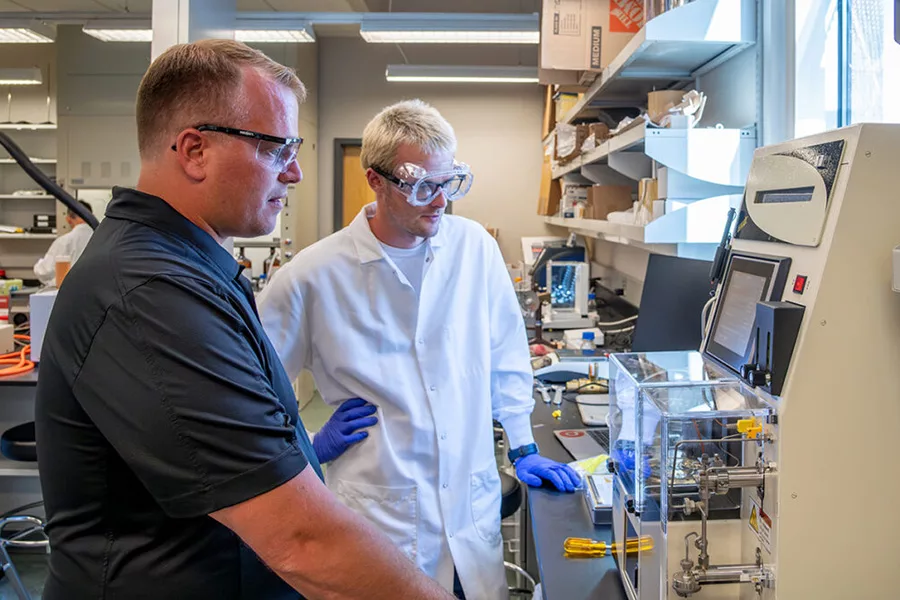
Home » WSU Tri-Cities researcher helps put university at top of his field
WSU Tri-Cities researcher helps put university at top of his field

Joshua Heyne (left) and Conor Faulhaber, research assistant, in the BSEL lab.
Courtesy WSU Tri-CitiesFebruary 20, 2025
If you want to do transformative work in sustainable aviation fuel, Washington State University is the place to be, especially at the Richland campus.
A recent study published in the journal Heliyon found WSU is globally the top contributing organization to scientific literature in the field, based on an analysis of articles, papers, editorials and news items published between 2001 to 2023, according to a release.
And Joshua Heyne, director of the Bioproducts, Sciences and Engineering Laboratory (BSEL) at WSU Tri-Cities and co-director of the WSU-PNNL Bioproducts Institute, was found to be the most cited author on sustainable aviation fuel.
Additionally, Heyne is recognized as the most productive author in the field during that time and with the most collaborations with other researchers.
“After reading the abstract for the first time, I was a bit surprised,” Heyne said in the release. “I get up every morning motivated to add value to the field with colleagues, but being highlighted as the most published and cited author was a surprise.”
The study, conducted by four faculty members from two universities in Turkey, analyzed 726 published studies on sustainable aviation identified from the Web of Science database. Three other WSU researchers also were identified as among the most cited authors.
At WSU Tri-Cities, Heyne leads testing and analysis of sustainable aviation fuel at BSEL, a 57,000-square-foot research and teaching laboratory operated in partnership with PNNL.
His most recent review paper, published in Nature Materials last November, was a collaboration with the National Renewable Energy Laboratory and the Massachusetts Institute of Technology. It concluded that lignin has strong potential as a sustainable alternative to fossil-based aviation fuels and advancing lignin valorization could significantly support net-zero goals by enabling large-scale sustainable aviation fuel production from the plant-based material.
Latest News Transportation
KEYWORDS February 2025
Related Articles
Related Products





